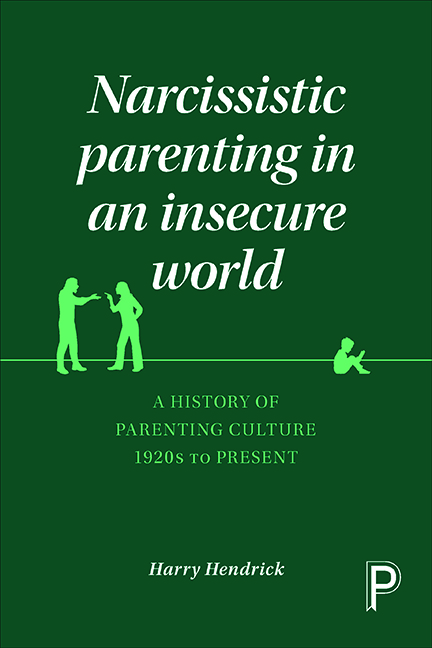Book contents
- Frontmatter
- Dedication
- Contents
- About the author
- Acknowledgements
- Introduction
- Part One The origins of social democracy’s family ideal: 1920s–1940s
- Part Two Characteristics of the ‘Golden Age’: 1940s–early 1970s
- Part Three Influences and examples from the USA
- Part Four Parental narcissism in neoliberal times: 1970s to the present
- Part Five Therapeutic reflections
- Index
five - Social science and American liberalism
Published online by Cambridge University Press: 05 April 2022
- Frontmatter
- Dedication
- Contents
- About the author
- Acknowledgements
- Introduction
- Part One The origins of social democracy’s family ideal: 1920s–1940s
- Part Two Characteristics of the ‘Golden Age’: 1940s–early 1970s
- Part Three Influences and examples from the USA
- Part Four Parental narcissism in neoliberal times: 1970s to the present
- Part Five Therapeutic reflections
- Index
Summary
Parenting democracy's children
The 1940s: creating the democratic culture in an ‘age of anxiety’
American scholars tend to see the 1960s as the decade when the country's moral values began to shift significantly. With regard to liberal child-rearing, however, even before the 1950s, there were indications of what turned out to be important cultural changes. Despite the popular critique of Momism, which portrayed mothers as overbearing and suffocating to the extent that they were responsible for ‘emasculating the nation’, encouraging the spread of homosexuality, and rearing a generation of sons whose neuropsychiatric condition made them unfit for military service, from the late 1930s, until the advent of the new behaviourists in the 1960s, parenting advice became far more child empathetic than it had been for most of the inter-war period when the punitive and habit obsessed behavioural psychology of J. B. Watson tended to hold sway. It is important to keep in mind, however, that Watson was never unopposed as the 1930s increasingly reflected broadly Freudian interests concerning the development of the child's personality, as well as Arnold Gessell's influential theory of developmental maturation. Furthermore, the United States was far from immune to the tremors of the European ‘crisis of civilization’, not least the rise of Fascism and Nazism, which produced a wave of Jewish refugees who brought with them an acute awareness of the dangers for democracy of the cultivation of ‘the authoritarian personality’, a concept that exerted considerable influence on social scientists. This was almost certainly in the mind of those attending the White House Conference on Children in a Democracy (1940) which, in promoting the theme of children as citizens, raised some fundamental questions about the nature of the parent–child relationship at a moment of such historical uncertainty.
One of the most talked-about baby books of the decade, Charles and Mary Aldrich, Babies are Human Beings (1938) (English edition, Understand Your Baby, published in 1939, with 20 reprints up to 1949), gave parents ‘the promise of the “secure” child in a “world of change”’ and encouraged mothers to enjoy their babies, albeit ‘in an intelligent way’.
- Type
- Chapter
- Information
- Narcissistic Parenting in an Insecure WorldA History of Parenting Culture 1920s to Present, pp. 169 - 198Publisher: Bristol University PressPrint publication year: 2016



